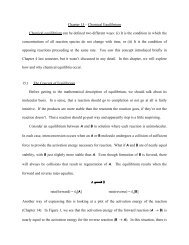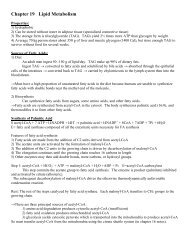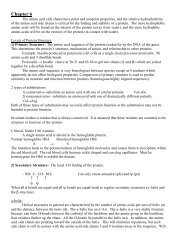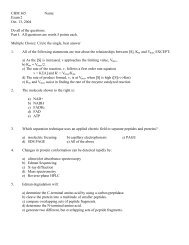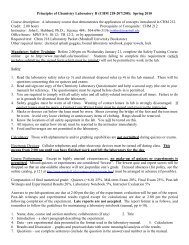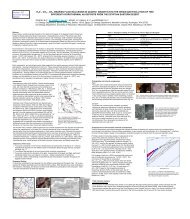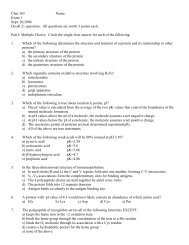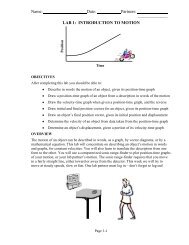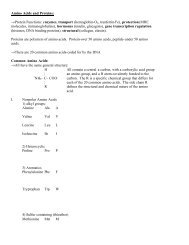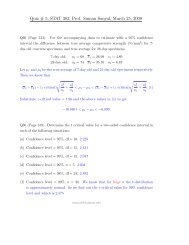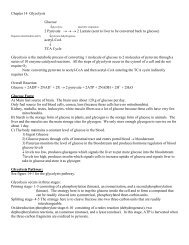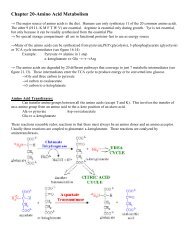THE DHAMMAPADA: THE WAY OF THE BUDDHA, VOL. 9-12 The ...
THE DHAMMAPADA: THE WAY OF THE BUDDHA, VOL. 9-12 The ...
THE DHAMMAPADA: THE WAY OF THE BUDDHA, VOL. 9-12 The ...
Create successful ePaper yourself
Turn your PDF publications into a flip-book with our unique Google optimized e-Paper software.
<strong>THE</strong> <strong>DHAMMAPADA</strong>: <strong>THE</strong> <strong>WAY</strong> <strong>OF</strong> <strong>THE</strong> <strong>BUDDHA</strong>, <strong>VOL</strong>. 9-<strong>12</strong> 113<br />
Jung went a little further into the unconscious. He went into the collective unconscious. This is getting more<br />
and more into muddy water, and this is not going to help.<br />
Assagioli moved to the other extreme. Seeing the failure of psychoanalysis he invented psychosynthesis. But it<br />
is rooted in the same idea. Instead of analysis he emphasizes synthesis.<br />
<strong>The</strong> psychology of the buddhas is neither analysis nor synthesis; it is transcendence, it is going beyond the<br />
mind. It is not work within the mind, it is work that takes you outside the mind. That’s exactly the meaning of<br />
the English word ’ecstasy’ to stand out.<br />
When you are capable of standing out of your own mind, when you are capable of creating a distance between<br />
your mind and your being, then you have taken the first step of the psychology of the buddhas. And a miracle<br />
happens: when you are standing out of the mind all the problems of the mind disappear, because mind itself<br />
disappears; it loses its grip over you.<br />
Psychoanalysis is like pruning leaves of the tree, but new leaves will be coming up. It is not cutting off the<br />
roots. And psychosynthesis is sticking the fallen leaves back onto the tree again gluing them back to the tree.<br />
That is not going to give them life either. <strong>The</strong>y will look simply ugly; they will not be alive, they will not be<br />
green, they will not be part of the tree but glued, somehow.<br />
<strong>The</strong> psychology of the buddhas cuts the very roots of the tree which create all kinds of neuroses, psychoses,<br />
which create the fragmentary man, the mechanical man, the robotlike man. And the way is simple....<br />
Psychoanalysis takes years, and still the man remains the same. It is renovating the old structure, patching up<br />
here and there, whitewashing the old house. But it is the same house, nothing has radically changed. It has not<br />
transformed the consciousness of the man.<br />
<strong>The</strong> psychology of the buddhas does not work within the mind. It has no interest in analyzing or synthesizing.<br />
It simply helps you to get out of the mind so that you can have a look from the outside. And that very look is a<br />
transformation. <strong>The</strong> moment you can look at your mind as an object you become detached from it, you become<br />
disidentified from it; a distance is created, and roots are cut.<br />
Why are roots cut in this way? because it is you who goes on feeding the mind. If you are identified you feed<br />
the mind; if you are not identified you stop feeding it. It drops dead on its own accord.<br />
<strong>The</strong>re is a beautiful story. I love it very much....<br />
One day Buddha is passing by a forest. It is a hot summer day and he is feeling very thirsty. He says to<br />
Ananda, his chief disciple, ”Ananda, you go back. Just three, four miles back we passed a small stream of water.<br />
You bring a little water take my begging bowl. I am feeling very thirsty and tired.” He had become old.<br />
Ananda goes back, but by the time he reaches the stream, a few bullock carts have just passed through the<br />
stream and they have made the whole stream muddy. Dead leaves which had settled into the bed have risen up;<br />
it is no longer possible to drink this water it is too dirty. He comes back empty-handed, and he says, ”You will<br />
have to wait a little. I will go ahead. I have heard that just two, three miles ahead there is a big river. I will<br />
bring water from there.”<br />
But Buddha insists. He says, ”You go back and bring water from the same stream.”<br />
Ananda could not understand the insistence, but if the master says so, the disciple has to follow. Seeing the<br />
absurdity of it that again he will have to walk three, four miles, and he knows that water is not worth drinking<br />
he goes.<br />
When he is going, Buddha says, ”And don’t come back if the water is still dirty. If it is dirty, you simply sit<br />
on the bank silently. Don’t do anything, don’t get into the stream. Sit on the bank silently and watch. Sooner or<br />
later the water will be clear again, and then you fill the bowl and come back.”<br />
Ananda goes there. Buddha is right: the water is almost clear, the leaves have moved, the dust has settled.<br />
But it is not absolutely clear yet, so he sits on the bank just watching the river flow by. Slowly, slowly it becomes<br />
crystal-clear. <strong>The</strong>n he comes dancing. <strong>The</strong>n he understands why Buddha was so insistent. <strong>The</strong>re was a certain<br />
message in it for him, and he understood the message. He gave the water to Buddha, and he thanked Buddha,<br />
touched his feet.<br />
Buddha says, ”What are you doing? I should thank you that you have brought water for me.”<br />
Ananda says, ”Now I can understand. First I was angry; I didn’t show it, but I was angry because it was absurd<br />
to go back. But now I understand the message. This is what I actually needed in this moment. <strong>The</strong> same is the<br />
case with my mind sitting on the bank of that small stream, I became aware that the same is the case with my<br />
mind. If I jump into the stream I will make it dirty again. If I jump into the mind more noise is created, more<br />
problems start coming up, surfacing. Sitting by the side I learned the technique.



